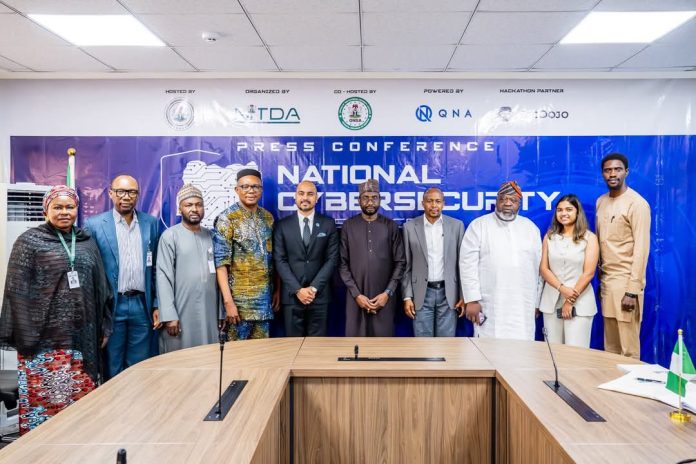By Emmanuella Oghenetega
Ahead of the National Cybersecurity Conference to take place in Abuja, the Director-General of the National Information Technology Development Agency (NITDA),
Malam Kashifu Inuwa, has said that in Nigeria, the emergence of sophisticated cyber-attacks, often powered by Artificial Intelligence (AI) highlights the urgent need for robust preventive measures.
The DG made this statement during a press conference in Abuja.
According to the DG, the Conference on National Cybersecurity, which is expected to hold between July 7 and 10, with the theme: “Building a Resilient Digital Future”, is expected to lend support to the successes already recorded in sanitising the online space.
The conference, Inuwa said, would be hosted jointly by NITDA in collaboration with Office of the National Security Adviser (ONSA) QNA, a Dubai-based event company, among other partners.
Inuwa said that with evolving digital world, there was need for urgent cybersecurity measures.
“The digital age has brought incredible opportunities for innovation and economic growth. However, it has also created serious cybersecurity challenges.
“By 2025, global cybercrime damages are projected to reach 10.5 trillion dollars annually, a sharp increase from three trillion dollars in 2015.
“In Nigeria, the emergence of sophisticated cyber-attacks, often powered by Artificial Intelligence (AI) highlights the urgent need for robust preventive measures.
“Focusing on equipping the nation’s youth with skills in technology and digital innovation can harness their talents for positive contributions,’’ he said.
Inuwa called on young people to leverage governments’ opportunities and use the cyberspace positively.
He said the conference would feature Cybersecurity Excellence Awards, to encourage individual and institutional contributions to protecting the integrity of the nation’s cyber space.
Mr Saad Abubakar, National Cybersecurity Coordinator, ONSA, said that addressing issues of cybersecurity required public-private partnership.
“You will realise that our children and elders are not protected online; 50 per cent goes on cyberbullying, cyber sextortion and the rest.
“If we can provide these online services, we should also channel the energy into securing our cyberspace,’’ he said.
Earlier, Mr Mohammed Lawal, Director, Cybersecurity Department, NITDA said that embracing digital transformation needed strengthening digital infrastructure resilience.


